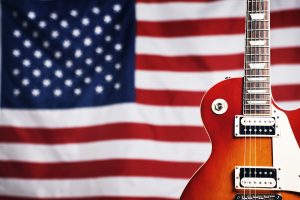Moments before former President Donald Trump took to the stage at a Montana rally this August, Celine Dion’s 1997 hit, “My Heart Will Go On,” blasted over the speakers while a clip appeared onscreen. It took less than 24 hours for the five-time Grammy winner’s team and Sony Music Entertainment Canada to issue a statement on social media saying that “in no way is this use authorized, and Celine Dion does not endorse this or any similar use.” Amid a heated political season, it’s not unusual for candidates to clash with the artists whose music they promulgate on the campaign trail. In Trump’s case, though, using a video compounded the legal complications. While political licensing for music typically needs approval from the recording artist, video playback requires approval from both the artist and composer. In theory, this fact would make it less risky for campaigners to stick with audio-only soundbites of their favorite crowd-pumping tunes. However, there are still questions around general music licensing dos and don’ts when it comes to politics, even as performing rights groups work to clarify things. For now, the intersection of artists’ rights and political campaigns remains a murky legal crossroads, at best.

